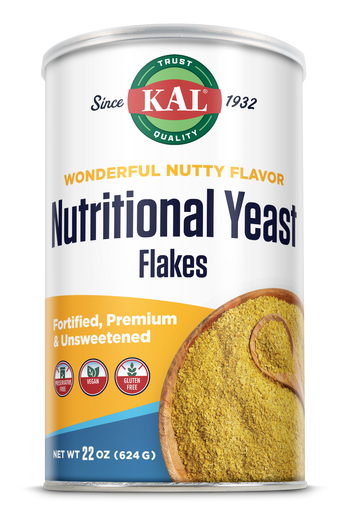- High in B12
- Rich flavor
- Quality assurance
- Natural nutrients
- High protein content
- Delicious flavor
- Fortified with synthetic vitamins
- May not suit everyone
- Lower in B12
- Can be pricier
KAL Nutritional Yeast Flakes vs Sari Foods Nutritional Yeast
When it comes to choosing a high-quality nutritional yeast product, two popular options stand out: KAL Nutritional Yeast Flakes and Sari Foods Nutritional Yeast. Both products offer a wealth of nutritional benefits, but they differ in terms of their ingredients, production processes, and overall value. In this comparison, we'll delve into the details of each product to help you decide which one is best for your needs.
KAL Nutritional Yeast Flakes
KAL Nutritional Yeast Flakes are a popular choice among health-conscious consumers. These flakes are made from Saccharomyces cerevisiae, a type of yeast that's naturally rich in protein, fiber, and various vitamins and minerals. KAL's nutritional yeast is grown on sugarcane or beet molasses, which provides the yeast with a nutrient-rich substrate to thrive on. The resulting product is then harvested, washed, and dried to create a flaky texture that's easy to sprinkle onto food.
One of the standout features of KAL Nutritional Yeast Flakes is their high content of B vitamins, particularly vitamin B12. This makes them an excellent option for vegetarians and vegans who may struggle to get enough of this essential nutrient from plant-based sources. Additionally, KAL's nutritional yeast contains a range of other beneficial compounds, including beta-glucans, which have been shown to support immune function.
Sari Foods Nutritional Yeast
Sari Foods Nutritional Yeast, on the other hand, takes a slightly different approach to production. Their nutritional yeast is also made from Saccharomyces cerevisiae, but it's grown on a substrate of organic sugarcane molasses. This gives their product a distinct flavor profile that's often described as nuttier and more mellow than other brands.
One of the key advantages of Sari Foods Nutritional Yeast is its high bioavailability. The company uses a proprietary process to break down the yeast cell walls, making it easier for the body to absorb the nutrients. This results in a product that's not only rich in vitamins and minerals but also easy to digest. Sari Foods Nutritional Yeast is also free from common allergens like gluten, soy, and dairy, making it an excellent option for those with dietary restrictions.
Comparison of Key Features
When comparing KAL Nutritional Yeast Flakes and Sari Foods Nutritional Yeast, several key features stand out:
- Vitamin B12 content: KAL's product has a slightly higher vitamin B12 content than Sari Foods, making it a better option for those looking to boost their intake of this essential nutrient.
- Flavor profile: Sari Foods Nutritional Yeast has a distinct, nuttier flavor that some users prefer, while KAL's product has a more neutral taste.
- Production process: KAL uses a traditional method of growing yeast on sugarcane or beet molasses, while Sari Foods employs a proprietary process to break down the yeast cell walls and enhance bioavailability.
- Allergen-friendliness: Both products are free from common allergens, but Sari Foods Nutritional Yeast is certified gluten-free, soy-free, and dairy-free.
Conclusion
In conclusion, both KAL Nutritional Yeast Flakes and Sari Foods Nutritional Yeast offer high-quality nutritional yeast products that can provide a range of health benefits. When choosing between these two options, consider your individual needs and preferences. If you're looking for a product with a higher vitamin B12 content and a more neutral flavor profile, KAL may be the better choice. On the other hand, if you prefer a nuttier flavor and a product with enhanced bioavailability, Sari Foods Nutritional Yeast is worth considering. Ultimately, both products are excellent sources of nutritional yeast, which can add depth, nutrition, and umami flavor to a variety of dishes.































